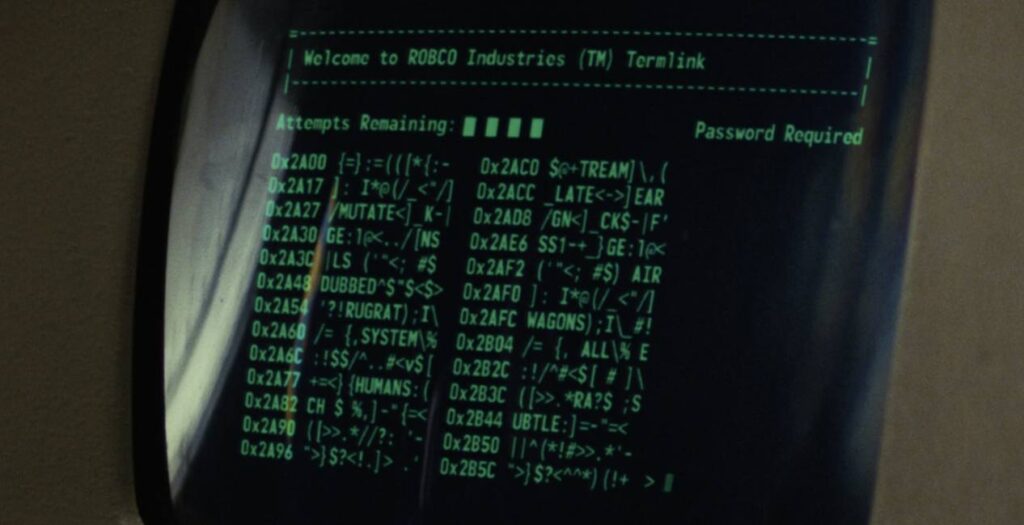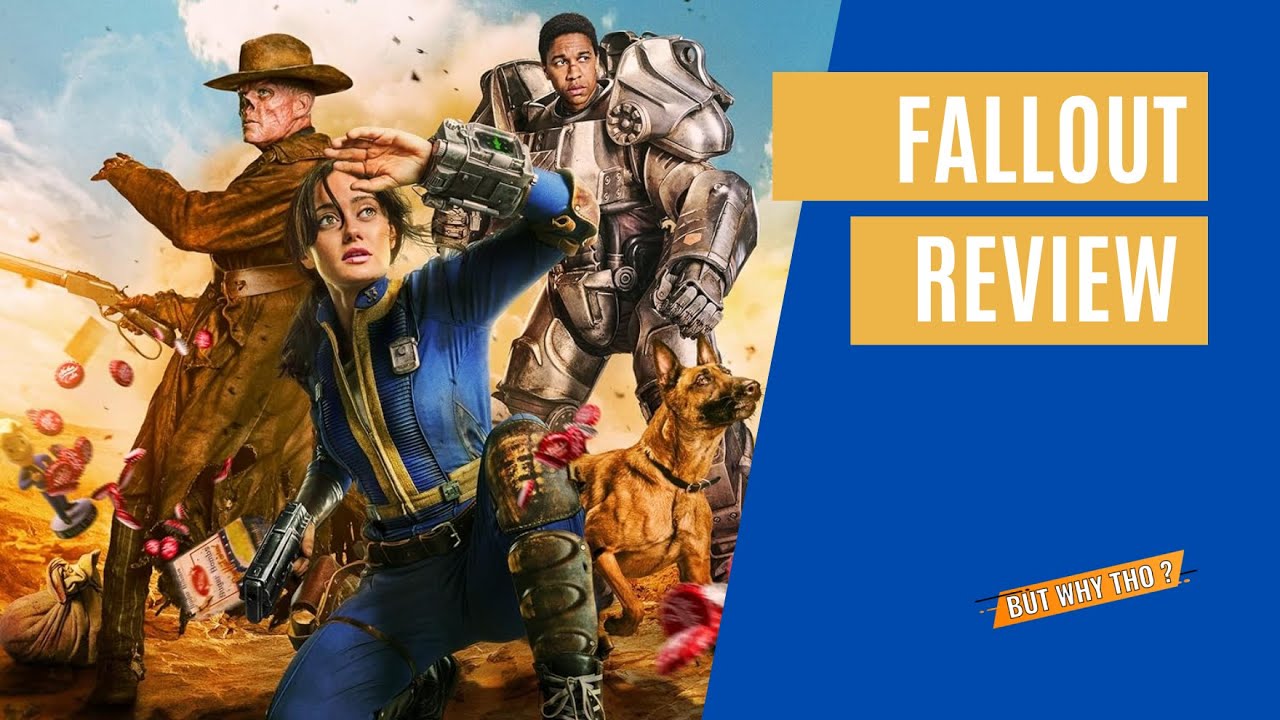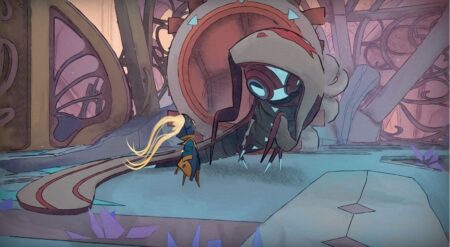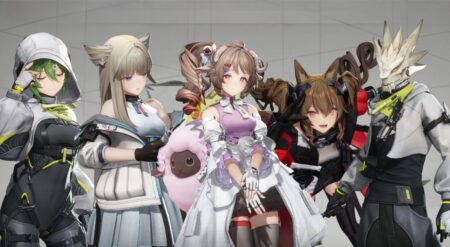For gamers, finding a passable video game adaptation is often a depressing endeavor. We’re a discerning bunch who crave adaptations that faithfully capture the essence of our beloved games and evoke the same emotions we experienced while gaming. Fallout Season 1 is now streaming on Prime Video, is a shining example of how to do it right. It’s poised to be one of the greatest video game adaptations ever precisely because it successfully encapsulates what makes Fallout so memorable.
While the adaptation introduces new elements and Easter eggs for fans to enjoy, its success lies in its faithful portrayal of three key aspects: exploration, combat, and the timeless theme that “war never changes. Spoilers for Fallout Season 1 ahead!
Exploring more than the Wasteland

From the start, viewers actively experience one of Fallout’s best aspects: exploring the wasteland and encountering its chaos. Lucy Maclean (Ella Purnell) the show’s protagonist, actively searches for her father in the wasteland, learning its ways like players stepping out of the vault in the games. Through Lucy, viewers learn about the hazards of essentials like water, radiated to nearly undrinkable levels. Danger lurks at every corner with radroaches, fiends, and robots, along with the various factions and people now inhabiting the surface.
As much as nature, Lucy must navigate the wasteland’s people, discerning allies from threats. This pulls Lucy into various side quests in her travels. Though she’s frequently sidetracked from her mission to save her father, these detours contribute to the series’ cohesive story, mirroring the depth found in the games. More importantly, though, the show explores the Fallout universe through different perspectives, expanding the scope of the stories to be told.
The series’s narrative takes characters to not only explore the wasteland of the 2296 greater Los Angeles area but also delve into the vaults and their secrets. This exploration is largely led by Lucy’s brother Norm (Moisés Arias). Viewers witness how humanity’s greed can lead to corruption and cruelty, revealing that life in the vault is not as perfect as portrayed. Norm’s exploration is packed with Easter eggs for fans, including hacking security terminals and gathering information from various members of Vault 33, providing the best live-action depiction of vaults in the series. However, vault dwellers aren’t the only stories to be told either.
Maximus offers fans a glimpse into the life of a surface dweller born into the chaos of the wasteland. His story, as a Brotherhood of Steel initiate, shows viewers how he navigates the wasteland using the teachings he has received. This perspective, rarely explored, sheds light on the experiences of someone outside the vaults. Witnessing the operations of different factions in the series provides a fresh exploration perspective, offering insights into these organizations from within rather than solely through Lucy’s vault dweller perspective.
Further, Walter Goggins’ portrayal of the Ghoul presents a profoundly dark exploration. Here, we witness a character who has likely spent over 200 years in this ghastly form, stripped of his former self. However, amidst this transformation, he grapples with questions of identity and purpose in this new world.
The fear of losing oneself is a recurring theme, evident in encounters with various ghouls throughout the series. Yet, it’s the Ghoul’s narrative that highlights this struggle most vividly as he endeavors to rediscover his true essence. Once a renowned Hollywood actor, he now embarks on a journey of self-discovery, navigating the wastelands in search of answers. With a potential lead on the whereabouts of his family, he realizes the importance of being there for them, prompting him to delve deeper into his own psyche than ever before.
Brutally Unapologetic Combat

The Fallout franchise, especially since Fallout 3, is renowned for its graphic and brutal combat, featuring explosive headshots, dismemberment, and slow-motion effects. Adapting this aspect to a TV series seemed challenging, given its availability to a wide audience. However, the show fearlessly embraces the brutality from the outset. Whether facing Yao Guai beasts, fiends, raiders, or expert marksmen ghouls, viewers witness intense combat true to the nature of the game series.
At one point, someone gets shot with a rotten tooth. If that doesn’t illustrate the depths to which the world goes to maintain power and weaponry, I don’t know what does. Viewers witness a variety of weapons, some directly from the game, while others offer playful twists. Additionally, characters like Lucy demonstrate resourcefulness, crafting improvised weapons like a poison dart from a Mr. Handy Droid and Abraxo. This constant innovation turns everything into a potential weapon, keeping everyone on guard. Moreover, adapting and honing skills, as Lucy does, becomes essential for survival as the series progresses.
Power armor stands out as one of the most iconic elements of the Fallout universe, alongside the Pip-Boy. Through Maximus and the other Brotherhood of Steel members, viewers witness the formidable power of the T60 armor, an upgrade from the T45 armor used in the Great War of 2077. Viewers witness the power armor and all its glory, with its ability to carry giant machine guns, grant super strength, and provide wearer-grade radiation resistance. With just one suit, Maximus defeats multiple adversaries around him with ease.
However, we do observe the various drawbacks of being inside power armor, explaining why it wasn’t always everyone’s first choice when playing the games. The armor feels clunky and can be slow at times, leaving you vulnerable to more maneuverable opponents who can outflank you.
Despite having ample armor, the power supply is not unlimited. If someone steals your fusion core, you’re essentially defenseless, much like Maximus at certain points during the series. More than that, Maximus is hesitant to leave it out in the open lest someone steals his armor. Something that players Fallout 4 players know all too well in Fallout Season 1
“War Never Changes,” but there is hope in Fallout Season 1

Central to the core of the franchise is the notion that, regardless of human progress or evolution, conflict and warfare persist as enduring constants. This theme is encapsulated in the iconic phrase, “War never changes.” Throughout the Fallout series, this concept is reiterated through the portrayal of a post-apocalyptic world where humanity’s innate propensity for conflict is exacerbated by the scarcity of vital resources and the struggle for power and control.
The theme of war extends beyond literal battles and military engagements, permeating interpersonal relationships and societal structures. In the show, as in the games, alliances are formed and dissolved, betrayals occur, and individuals grapple with moral ambiguity in their quest for survival. Friendships are tested, and characters are forced to confront their own capacity for violence and cruelty in a world where trust is a scarce commodity.
The series underscores the universal desire to improve the world, yet it highlights the divergent paths taken toward that goal. Unfortunately, in the wasteland, such aspirations often lead to war. Even endeavors ostensibly aimed at betterment, like Vault-Tec’s experiments, can sow discord and perpetuate the cycle. Despite this, pockets of hope exist, such as Vault 4’s Enclave, where inhabitants strive for a semblance of utopia amid the chaos.
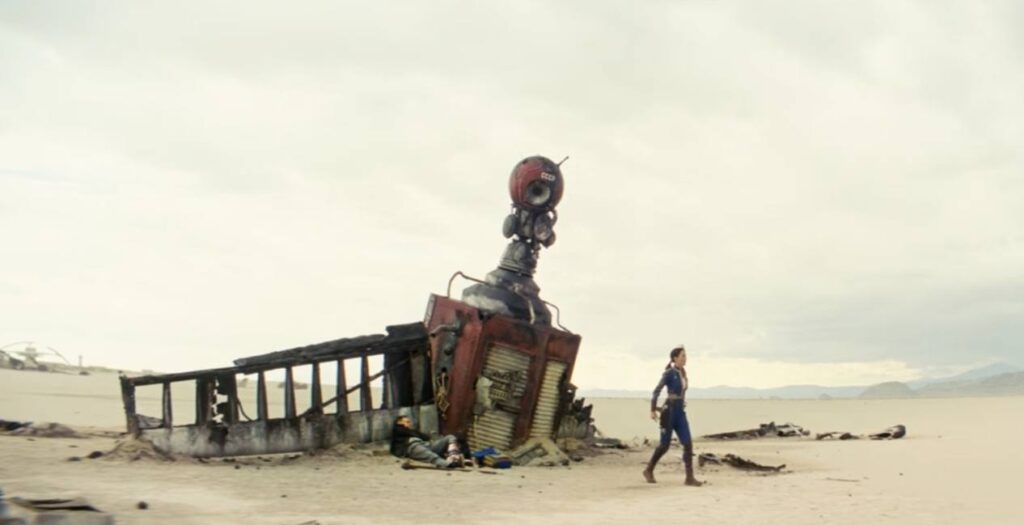
Despite their differences from Lucy’s experience in Vault 33, they embody a vision of a better world. Following an incident in Vault 4, they choose to spare Lucy, unlike many others in similar situations who would have executed her immediately. This illustrates that, although war remains a constant, there is still hope for a better world embodied by characters like Lucy and the members of Vault 4. However, their struggle lies in facing opposition from factions in the Wasteland that prioritize their own objectives over the common good.
Further, the character of the Ghoul epitomizes the resignation of the cycle of war. Having endured past wars and now navigating the current chaos, he seeks solace amidst the turmoil. Though the series suggests the cycle may be unbreakable, it emphasizes the significance of actions in the present. Characters like Lee Moldaver (Sarita Choudhury) embody this ethos, striving to better the world despite the odds. However, the emergence of power-hungry factions like the Brotherhood of Steel threatens this fragile equilibrium, prioritizing their agenda over collective well-being.
Fallout Season 1 has proven its ability to execute key elements of the franchise effectively, anticipation for a potential showdown in New Vegas is palpable.The stage is set for the show to expand upon one of the most cherished games in the series, Fallout: New Vegas.
Having demonstrated its ability at handling these crucial details, there’s confidence that the next season will continue to captivate audiences with its storytelling and world-building. Backed by the acclaim of one of the finest video game adaptations, the series is poised to continue its success story. In Todd Howard (and Jonathan Nolan and Lisa Joy) we trust!
Fallout Season 1 is streaming now, exclusively on Prime Video.

